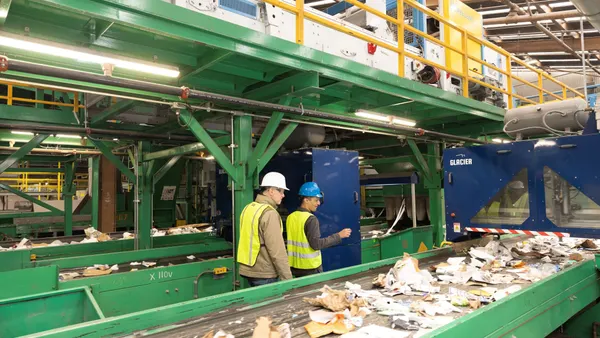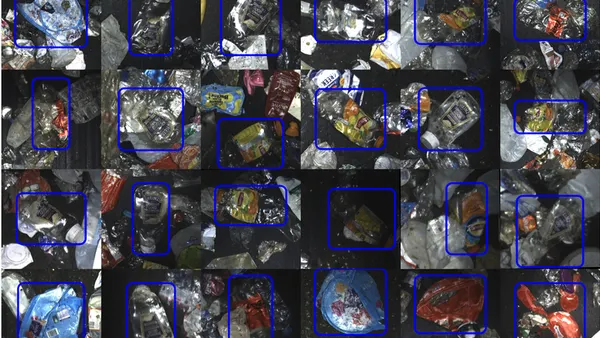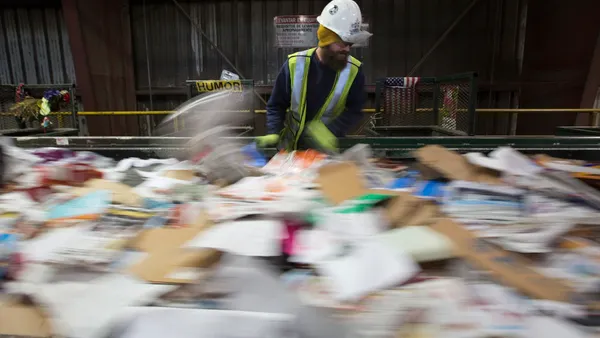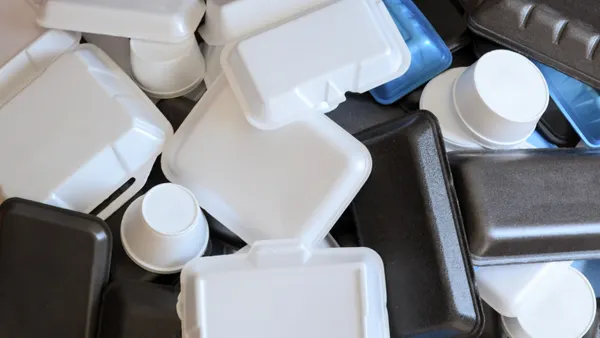UPDATE March 21, 2018: The city of Lincoln, NE has collected 22.8% more cardboard (517,775 lbs.) in January and February this year than the same time period last year, according to the Lincoln Journal-Star. Officials in Lincoln are attributing this increase to the coming ban on corrugated cardboard from landfills that begins later this year.
Households with curbside recycling collection are already accounted for under the coming ban. Businesses, apartments and homeowners who do not already have curbside collection will have to find alternative methods for disposing corrugated cardboard come April.
Lincoln has purchased 19 roll-off containers with a state grant — the purchase has almost doubled the city's capacity for cardboard collection across its 28 recycling sites. The city says it is able to handle a 200% increase in recycled cardboard value.
Dive Brief:
- Lincoln, NE will ban corrugated cardboard from landfills beginning April 1, and has launched a new "Take It To the Bin" campaign to help residents understand why, as reported by the Lincoln Journal Star. Mayor Chris Beutler hosted a press conference at the local Mid America Recycling facility, published an op-ed and also made a cameo in a PSA called "The Cardboard Coach" to market the new policy.
- The city estimates that 9.5% of the material it sends to landfill is cardboard, equaling more than 19,000 tons. According to Beutler's op-ed, this material is in high demand at regional mills and could have added $2.3 million to the local economy if recycled.
- Mid America Recycling told Channel 8 Eyewitness News that it has already seen an uptick in cardboard volume ahead of the official ban enactment. While residents won't be fined directly by the city at first, they can be charged a fee by their haulers for failing to recycle the material. Residents can also take cardboard to 28 free drop-off sites in the city.
Dive Insight:
Lincoln has landfill bans on tires, vehicle batteries and appliances, as well as yard waste on a seasonal basis. This ban, though, sparked a lot of discussion in Lincoln leading up to its approval in Jan. 2017. Since then, the Lincoln City Council voted to approve a three-year education contract for more than $600,000 with a local firm. A state grant is covering $225,000 of that cost, and the rest is being funded by local landfill taxes.
A growing amount of toolkits and case studies are now out there for driving behavior change in residential recycling programs, so the city will have many resources to draw from. The commercial aspect of this ban could be more difficult on a case-by-case basis, but also more fruitful for haulers because businesses often have larger volumes of cardboard.
Some of the largest generators — such as big box retail or grocery stores — may already bale their cardboard. It could more likely be smaller establishments such as restaurants or other businesses that may need assistance. The city is offering rebates of up to $750 to help businesses with start-up costs involved in creating new recycling programs.
Lincoln's hope is that this new ban will boost the city's diversion rate from 21% to 31% once fully implemented. It will follow the lead of other municipal cardboard bans set by regional cites in Iowa, Colorado and South Dakota. Statewide bans also exist in California, Wisconsin and multiple New England states. As is the case with any ban, enforcement and education will be key to ensuring it actually has the intended effects.









